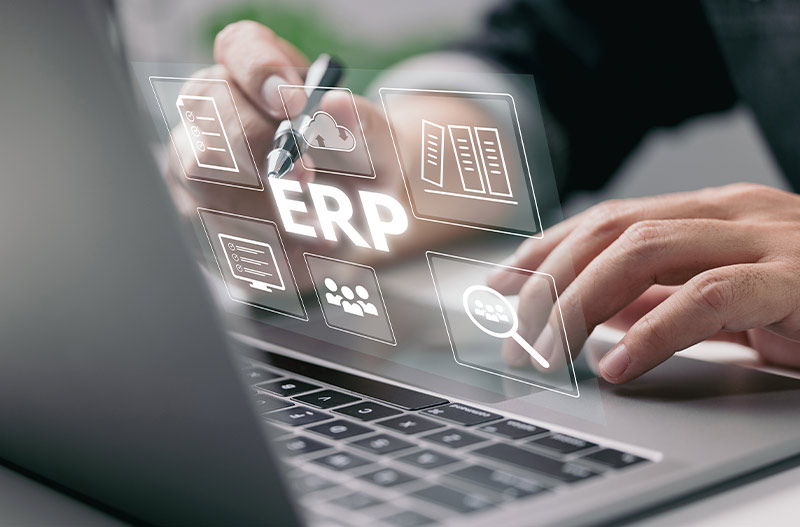
Enterprise resource planning (ERP) is a suite of integrated applications that helps businesses manage their core processes, such as accounting, inventory, manufacturing, and customer relationship management (CRM). ERP can be a valuable tool for businesses of all sizes, but it is especially important for small businesses that are looking to improve their efficiency and growth.
Why is ERP important for small businesses?
There are a number of reasons why ERP is important for small businesses. First, ERP can help to improve efficiency by automating tasks and by providing a single source of truth for data. This can free up employees to focus on more strategic activities, and it can also help to reduce errors. Second, ERP can help to increase accuracy by providing real-time data and insights. This can help businesses to make better decisions, and it can also help to improve compliance. Third, ERP can help to reduce costs by automating tasks, by providing insights into business performance, and by improving compliance. This can free up resources that can be used to grow the business.
How to implement ERP successfully
Implementing ERP can be a complex and challenging process, but it is important to do it correctly in order to reap the benefits. Here are some tips for implementing ERP successfully:
- Start by assessing your needs. Before you start implementing ERP, it is important to assess your needs and to identify the areas where you want to improve. This will help you to choose the right ERP system and to plan the implementation process.
- Get buy-in from stakeholders. ERP implementation is a company-wide effort, so it is important to get buy-in from all stakeholders. This includes employees, managers, and executives.
- Choose the right ERP system. There are a number of ERP systems available, so it is important to choose the right one for your business. Consider the size of your business, your industry, and your budget when making your decision.
- Plan the implementation process. Once you have chosen an ERP system, you need to plan the implementation process. This includes creating a timeline, assigning tasks, and communicating with stakeholders.
- Train your employees. Once the ERP system is implemented, you need to train your employees on how to use it. This will help them to get the most out of the system and to avoid making mistakes.
- Monitor and adjust as needed. Once the ERP system is in use, you need to monitor it and make adjustments as needed. This will help you to ensure that the system is meeting your needs and that it is being used effectively.
Conclusion
ERP can be a valuable tool for small businesses that are looking to improve their efficiency and growth. However, it is important to implement ERP correctly in order to reap the benefits. By following the tips in this guide, you can increase your chances of implementing ERP successfully.
